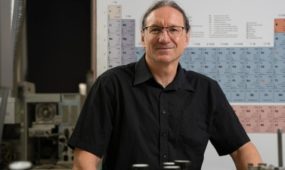The New Colombo Plan goes back to the future
Education
A HUNDRED of the brightest young minds in Australia will study in more than a dozen Indo-Pacific nations next year as part of a revamped program dating back to the 1950s.

Sign up to receive notifications about new stories in this category.
Thank you for subscribing to story notifications.
The Australian Government relaunched the New Colombo plan this year, following a successful pilot program in 2014.
The original Colombo Plan, initiated by Australia and Sri Lanka, was introduced as a centrepiece of Australian foreign policy in 1951 to strengthen relationships with the Indo-Pacific. Its membership soon swelled to 25 countries and by the 1980s the Colombo Plan led to more than 20,000 young men and women from the Indo-Pacific, including many from China, being educated in Australia.
Many have gone on to become senior figures in business and government in their homelands.
The New Colombo Plan works in reverse, with thousands of Australian students sent to Indo-Pacific nations to study and work each year.
On December 1, Australian Foreign Minister Julie Bishop announced the 100 successful Australian scholars for 2016 from 26 institutions. Six University of South Australia students and four University of Adelaide students were among the scholarship winners.
Countries including Bhutan, the Maldives, Myanmar, the Solomon Islands, Sri Lanka and Vietnam will join established scholarship destinations such as Singapore, Japan, Korea, China, Hong Kong, Indonesia, Malaysia and Thailand for the first time in the new plan.
South Australian company Scope Global won the three-year contract to manage support services for the scholarship stream of the New Colombo plan.
Scope Global will work with the Department of Education and Training, the Department of Foreign Affair and Trade’s New Colombo Plan Secretariat and with Home and Host Institutions to provide pre-departure advice and guidance, ongoing support while in country, and assistance with return to Australia.
Scope Global’s Executive Manager for International Scholarships and Development, Andrew Brown, said the contract was a significant win for the company given the high profile of the program.
“Our success shows that Scope Global has established itself as a leading organisation within the competitive fields of international education and development,” he said.
“We are looking forward to drawing on our experience to deliver high quality post-selection support services for New Colombo Plan scholars.”
Foreign Minister Bishop said these New Colombo Plan scholars had been selected on the basis of their academic performance, community leadership and a proven commitment to forging long term relationships with the Indo-Pacific.
“This talented group of students will be impressive young ambassadors for Australia in the Indo-Pacific region, as they undertake studies, gain industry experience and learn about another culture while fostering friendships and networks that will last a lifetime,” she said.
Although there were no scholarship winners from Flinders University, South Australia’s third major university, 192 Flinders students will participate in the New Colombo Plan’s Mobility Program across 18 projects in 2016.
The Mobility Program gives Australian students the opportunity to travel to Indo-Pacific nations to undertake industry internships relevant to their study disciplines.
University of South Australia Deputy Vice Chancellor & Vice President: International and Advancement Nigel Relph said the internships gave students excellent employability skills “to go out into the world and make their mark”.
“Increasingly as Australia becomes more integrated with the Asia Pacific it’s going to be more and more important that our students have got an understanding of how business and culture works in all the countries around the region,” he said.
Relph said 150 UniSA students would have undertaken Mobility Program internships through the New Colombo Plan by the end of 2016 in a wide variety of disciplines including advanced manufacturing in Japan, pharmaceutical science in China, physiotherapy in India and teaching English as a second language students in Korea.
He said a similar number of students would this year use the program to undertake internships in areas such as physiotherapy in India and nursing in the Cook Islands.
“It’s really valuable hands on experience these students get.”
“It also improves the understanding of Australia for the host countries so it’s got to be advantageous to them as well.”
Jump to next article



